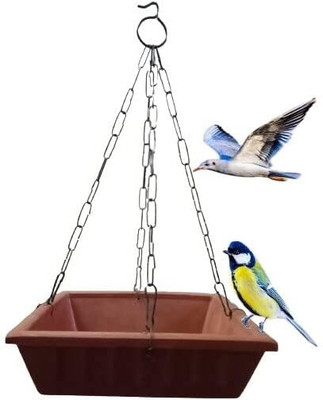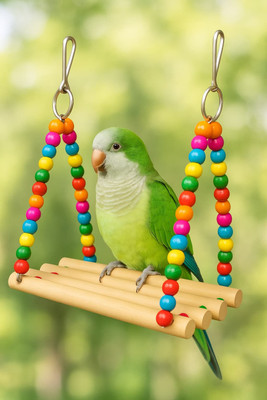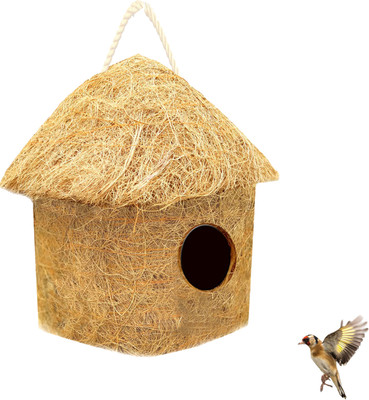
Beak Bite BF1990 Pole Mount Bird Feeder (Green)
Share
Beak Bite BF1990 Pole Mount Bird Feeder (Green)
Be the first to Review this product
₹199
₹399
50% off
Available offers
T&C
T&C
Delivery
Check
Enter pincode
Delivery by23 Jun, Monday
?
View Details
Highlights
- Easy To hang
- Capacity 1.5 KG
Services
- Cash on Delivery available?
Seller
Description
Bird feeders offer a surprising array of benefits, both for the birds themselves and for the humans who observe them. Here's a breakdown:
Benefits for Birds:
* Supplemental Food Source: Feeders provide an easily accessible and reliable food source, which can be crucial during times of scarcity, such as harsh winters, periods of drought, or during migration. This can help birds conserve energy and survive.
* Aids During Nesting Season: During the summer, when bird populations boom, there's a higher demand for food. Feeders can supplement natural food sources, reducing the time parent birds need to spend foraging and allowing them to stay closer to their chicks.
* Improved Health: Some studies suggest that birds in areas with feeders tend to have lower stress levels, increased antioxidant levels, and improved body condition. Sick or injured birds may also use feeders as a refuge, as they don't have to expend as much energy finding food.
* Support for Habitat Loss: With increasing urbanization and habitat destruction, bird feeders can offer a small haven for birds, providing a safe environment with food and water.
* Pollination and Pest Control: Certain bird species (like hummingbirds) contribute to pollination, while others (like swallows and goldfinches) help control insect populations (mosquitoes, beetles, flies) and even eat weed seeds.
Benefits for Humans:
* Connection with Nature: Bird feeders offer a wonderful opportunity to observe wildlife up close, bringing the wonders of nature right into your backyard. This can be especially valuable for those in urban areas or with limited mobility.
* Stress Reduction and Mental Well-being: Watching birds is a calming and relaxing activity that can reduce stress and anxiety, improve mood, and provide a pleasant escape from daily stressors. Studies have even linked bird feeding to improved mental health.
* Educational Opportunity: Bird feeders provide a living classroom, allowing people of all ages to learn about different bird species, their behaviors, and their role in the ecosystem. This can foster a greater appreciation for wildlife and conservation.
* Physical Activity (Minor but Present): The act of filling and cleaning feeders, especially in colder months, can provide a good reason to get outside for a few minutes.
* Community and Conservation Awareness: Bird feeding can foster a sense of community among bird enthusiasts and raise awareness about bird conservation efforts. Many people who feed birds also become more interested in broader environmental issues.
While there are many benefits, it's important to remember that responsible bird feeding practices are crucial to ensure the well-being of the birds. This includes keeping feeders clean to prevent disease spread and offering appropriate and fresh food.
Read More
Specifications
In The Box
|
General
| Brand |
|
| Model Name |
|
| Model Number |
|
| Material |
|
| Color |
|
| Capacity |
|
| Type of Feeder |
|
| Brand Color |
|
| Number of Ports |
|
| Net Quantity |
|
Body & Design Features
| Mount Features |
|
| Design |
|
| Birds Attracted |
|
| Removable Base Tray |
|
| Transparent Body |
|
| Draining Hole |
|
| Rust Resistant |
|
Dimensions
| Width |
|
| Height |
|
| Depth |
|
| Wire Length |
|
| Weight |
|
Be the first to ask about this product
Safe and Secure Payments.Easy returns.100% Authentic products.
Back to top








